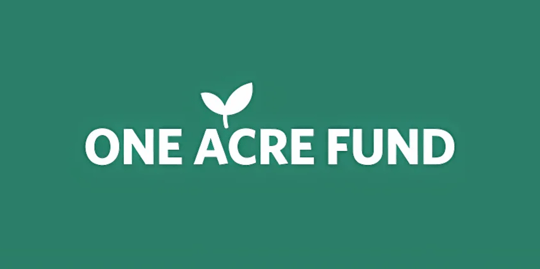Rooting Justice in the Soil: Reflections from the High Atlas Foundation on One Acre Fund’s Vision

On September 15th, the Ecosia Partner Network (EPN) Learning Session hosted a powerful presentation from One Acre Fund, an organization that has redefined what it means to support smallholder farmers at scale while keeping community agency at the center. As a volunteer with the High Atlas Foundation (HAF) in Morocco, I joined the session eager to learn how such a large-scale initiative balances ambition with integrity. It presented a comprehensive framework for rural development oriented toward justice and a clear commitment to ensuring that no farmer is left behind.
One Acre Fund currently serves 5.5 million farmers across ten countries, generating an annual income impact of 450 million dollars. This is made possible through an integrated service delivery model that ensures farmers receive sufficient physical inputs such as seeds, fertilizer, and cookstoves, and also credit, crop insurance, and community-based training. The organization demonstrates a deliberate ability to decentralize service delivery while maintaining consistent quality, and ensures that scale enhances rather than compromises impact.
The gender lens embedded in the model is equally deliberate. With 60% of their beneficiaries being women, One Acre Fund has designed a structure that includes women and anticipates their leadership in land and agricultural systems. This approach strongly aligns with the work and achievements of HAF. In the rural Moroccan communities, women-led cooperatives are reshaping economic structures and environmental practices. Their leadership challenges entrenched gender norms while generating tangible benefits for their families and ecosystems. Through One Acre Fund’s work, we can understand that sustainable development becomes transformative when women’s agency is not treated as an add-on, but deeply embedded as a foundational principle shaping every layer of design and implementation.
One Acre Fund’s visionary tree program moves beyond conventional notions of afforestation. The initiative operates as a deeply integrated intervention into rural livelihoods, climate adaptation, and land sovereignty. In Rwanda, the organization is advancing a comprehensive plan to distribute 250 million trees across 27 districts, structured around three interlocking components: forest and land restoration, erosion-focused reforestation, and household-level fruit tree planting. Each element is tailored to the specific ecological and socioeconomic conditions of participating communities, including variations in landholding size, erosion vulnerability, and subsistence needs. I see strong parallels with work at the HAF in Morocco.
In the 2024 to 2025 planting season, HAF assisted farming families in planting over 2.2 million trees in 12 regions and sewing over 4.4 million seeds through its ten community nurseries. HAF largely empowers local farmers to choose among indigenous fruit and nut trees such as olive, almond, argan, carob, fig, and walnut, and these are the varieties selected for their drought resilience and cultural relevance. In both One Acre Fund’s work and HAF’s programs, trees become tools of reclamation, nourishment, and resilience, binding together environmental restoration with social justice and food sovereignty under changing climates.
The most innovative dimension of One Acre Fund’s approach is the Native Tree Festivals. Strategically held before the planting season in selected districts, these gatherings are precious cultural interventions that blend ecological education with communal celebration. Farmers share personal testimonies and engage with knowledge about indigenous species. Villages with the highest twelve-month tree survival rates are publicly recognized and awarded community development grants, which they can channel into shared infrastructure or social projects of their choosing.
In Morocco, HAF has organized similarly powerful moments of community engagement. On January 20, 2025, HAF hosted its twelfth Tree Planting Day across nine regions in Morocco. The event brought together farmers, women, children, students, cooperatives and local leaders in a shared effort to care for the environment. They planted olive, carob, almond, cherry, walnut, fig, and pomegranate trees, and these trees were chosen by farming families from HAF’s community nurseries, making sure they fit the needs and traditions of each region. This special day showed a strong local commitment to healing the land, improving food access and connecting people to their environment. All these activities offer an amazing example of how environmental stewardship can be cultivated through pride, joy, and collective memory.
In Morocco, HAF has also organized a powerful project of community engagement. On January 20, 2025, HAF’s 12th Tree Planting Day helped restore ecosystems and regenerate land across nine regions in Morocco. The project brought together small farmers, women, children, students, cooperatives and local leaders, planting native and fruit-bearing trees such as olive, carob, almond, cherry, walnut, fig and pomegranate trees in lands that carefully selected and natured by local farming families via community nurseries.
This national program boosted species diversity and strengthened ecological resilience in different regions. Over time, the mature trees promise to provide shade, improve soil quality, sequester carbon, and continuously support Morocco’s broader environmental and climate SDGs. This annual special day showed a strong local commitment to healing the land, improving food access and connecting people to their environment. HAF’s work offers an amazing example of how environmental stewardship can be cultivated through pride, joy, and collective memory.
In this webinar, I can see that One Acre Fund model offers a redefinition of scale, a scale that is measured trust built, agency restored, and futures co-authored. HAF also shares this mission: we believe that sustainable development must grow from the ground up, where communities themselves define their path and lead their own efforts.
Wanxu Li is a student at the University of Toronto and is currently interning at the High Atlas Foundation.